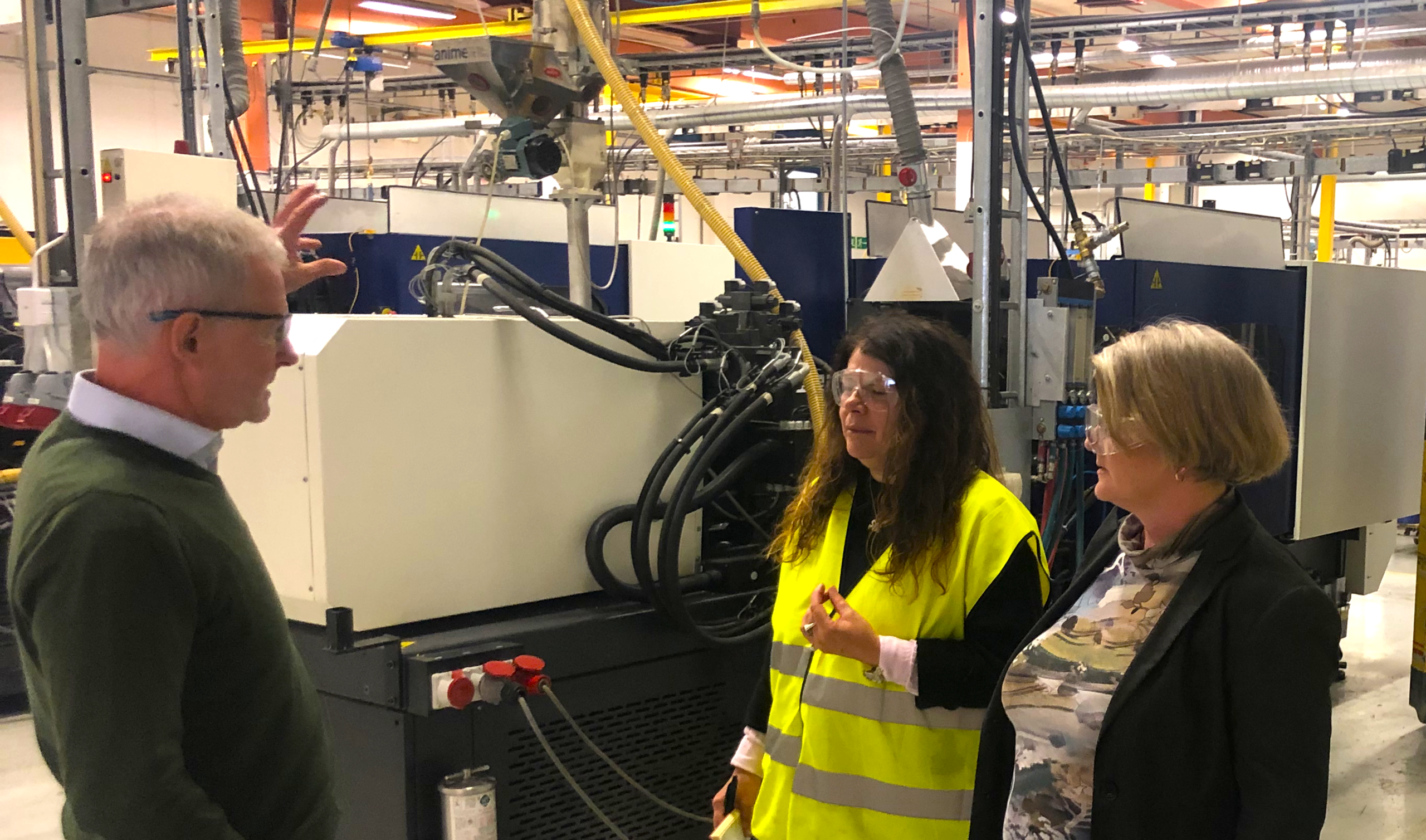
Since 1996 KPS has been a leading brand in the development of plastic petroleum/fuel pipe systems which today are sold and across the world in Europe, the Middle East, Asia, China, South America and Africa.
KPS’ double wall polyethylene piping, originally manufactured by Kungsör Plast, is a popular choice among forecourt installers, as well as at marinas, ports, data centres, hospitals and many more; offering smart, lightweight and compact solutions designed to make piping installation easier and to provide long-lasting solutions that are liquid/watertight and corrosion-free.
In 2013, Kungsör Plast AB and its trademark KPS brand became part of OPW, a Dover company. Earlier this year, accompanied by erpecnewslive.com publisher, Nick Needs, I visited the home of KPS piping in Sweden, and met with OPW Regional Sales Director Staffan Helleday, and OPW Sweden’s Operations Manager Susanne Åhlström Dahl, who ran through what we could expect to see during our visit.
Before being allowed anywhere near the factory floor, Nick and I were geared up with high vis jackets, protective glasses, and safety shoes, all adhering to the highest US Health and Safety standards.
Polyethylene balls heated to a critical temperature
As we filed out onto the factory floor, Susanne gave each of us a handful of tiny plastic balls, which individually were considerably smaller than peas. She told us these are used in the first stage of production for the KPS Petrol Pipe System. The polyethylene balls are heated on mass to a critical temperature, before being extruded into the desired shape, which in the context of this article is piping.
Despite having so many machines working across the factory floor at the same time, it was noticeable just how low the noise level was, and also just how clean the factory appeared throughout.
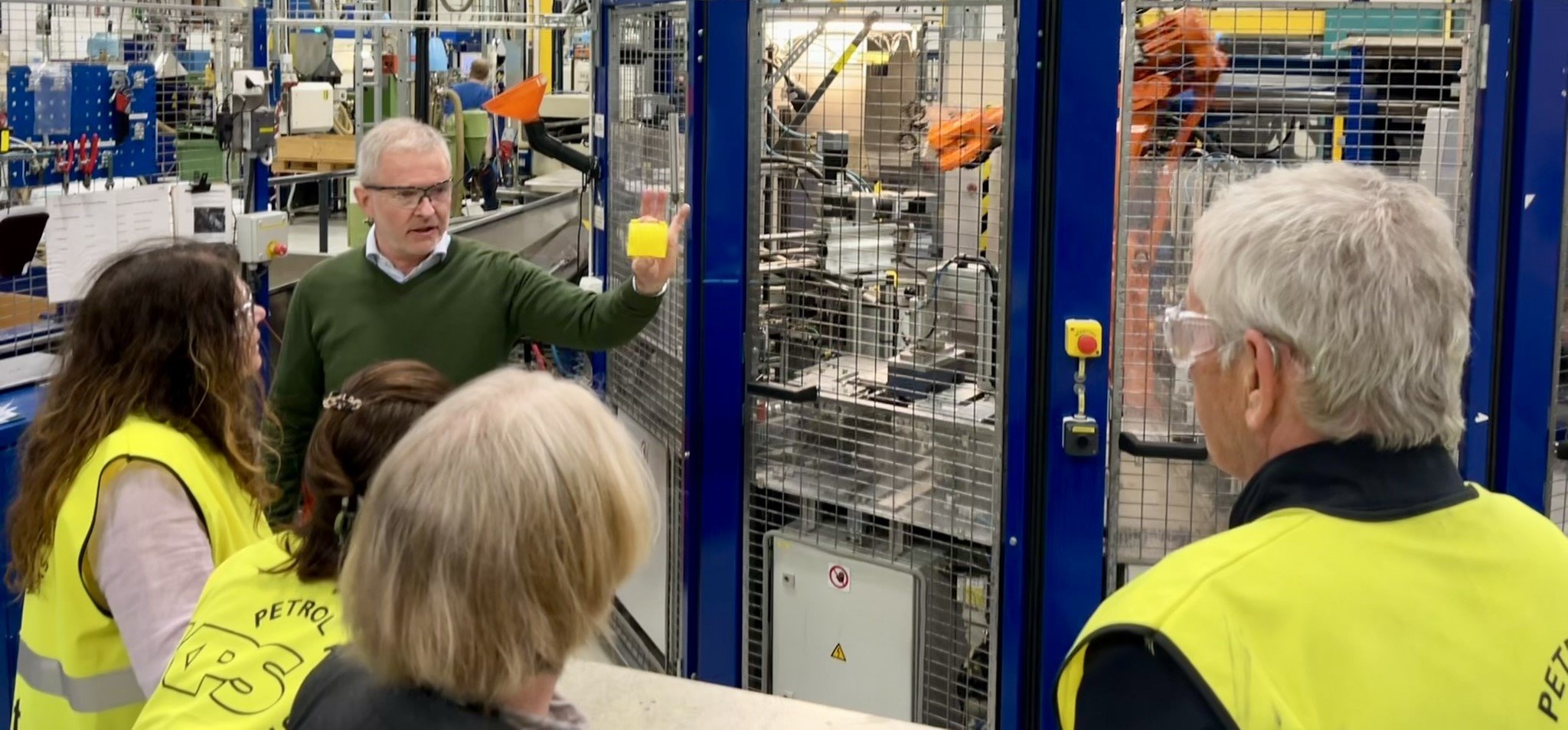
Robots take the strain on the factory floor
There was a degree of apprehension as we approached the first of the three robots operating 24/7 on the factory floor. They looked so human-like in their movements, which is likely to make anyone pause for a moment to reflect on what they have just seen.
Zig and Zag, if I were to give them a name, were noticeably products of home-spun technology. When we passed by, the robots were in full swing working on completely different stages of the pipe work production process. A few factory facts below;
There are 16 injection moulding machines / KPS uses two methods of production – extrusion and injection moulding / Thirty-five members of staff work on the factory floor covering three different shifts, allowing the factory to remain open 24 hours a day - Monday to Friday / In line with Sweden’s equality in the workplace, women and men make up an equal percentage of the workforce across all jobs.
We learnt from Staffan Helleday, that in addition to producing KPS polyethylene piping, OPW Sweden sub-contracts the manufacture of plastic parts for other companies. While we were there, we saw moulded plastic yellow caps coming off the production line for a well-known Swedish car and truck manufacturer and specially designed friction plates, providing more fluidity for a leading Swedish crane manufacturer.
3D printers also have a part to play
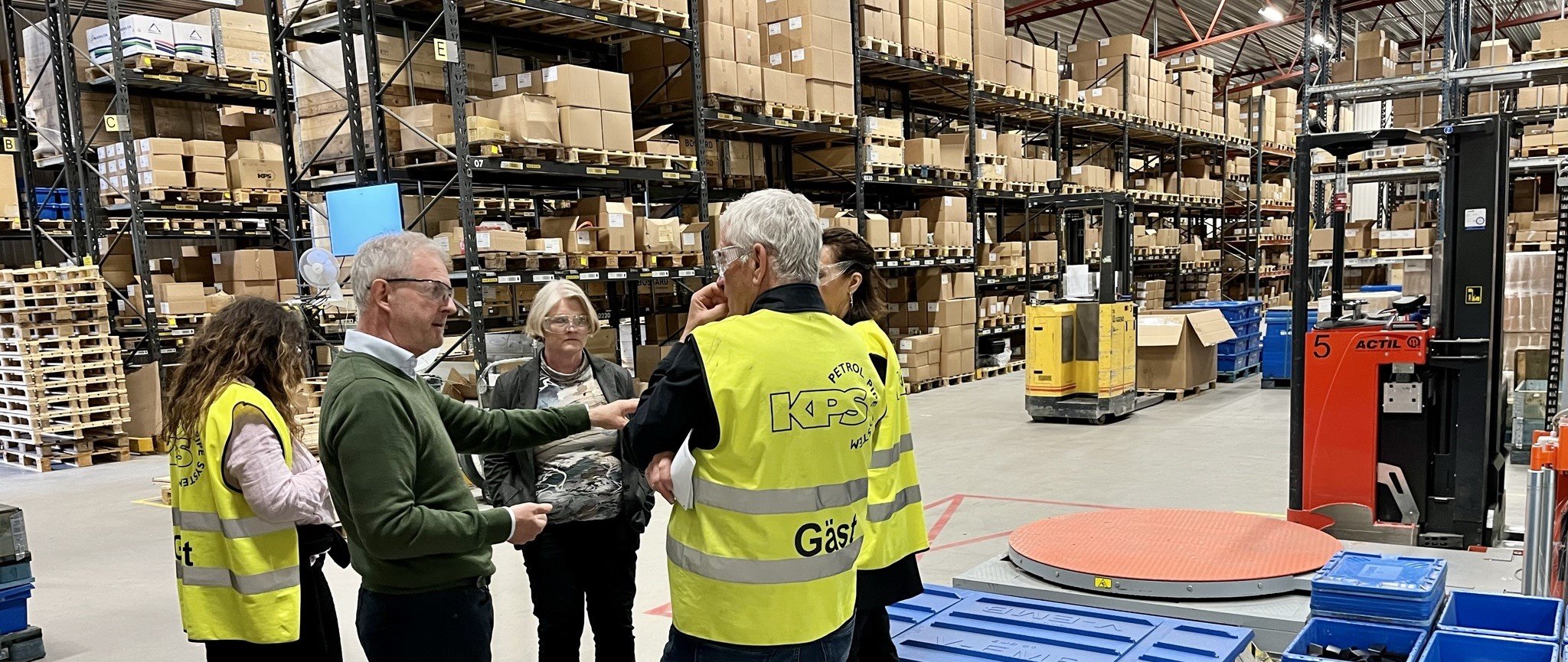
These days, creating prototypes of moulded solutions requires an enormous amount of investment, technical ability, and cutting-edge manufacturing facilities. Susanne explained that OPW Sweden has several 3D printers where technicians are able to create prototypes of products and test them before they ever see the factory floor. This, she said, is invaluable for return on investment and testing before putting them into full-scale production.
It was indeed a fascinating tour, although much of what was on view we can’t write about for obvious reasons. We though did meet some very helpful people and witnessed an extremely effective modern factory churning out untold amounts of polyethylene, piping ready to be installed underground at a service station, backup generator or port near you.
Continuous lengths of green piping passed us by as we exited the factory, stored mostly on enormous reels, waiting to be transported across world. The conclusion of a factory tour is always a good time to reflect on where a company started out and how it developed over the years.
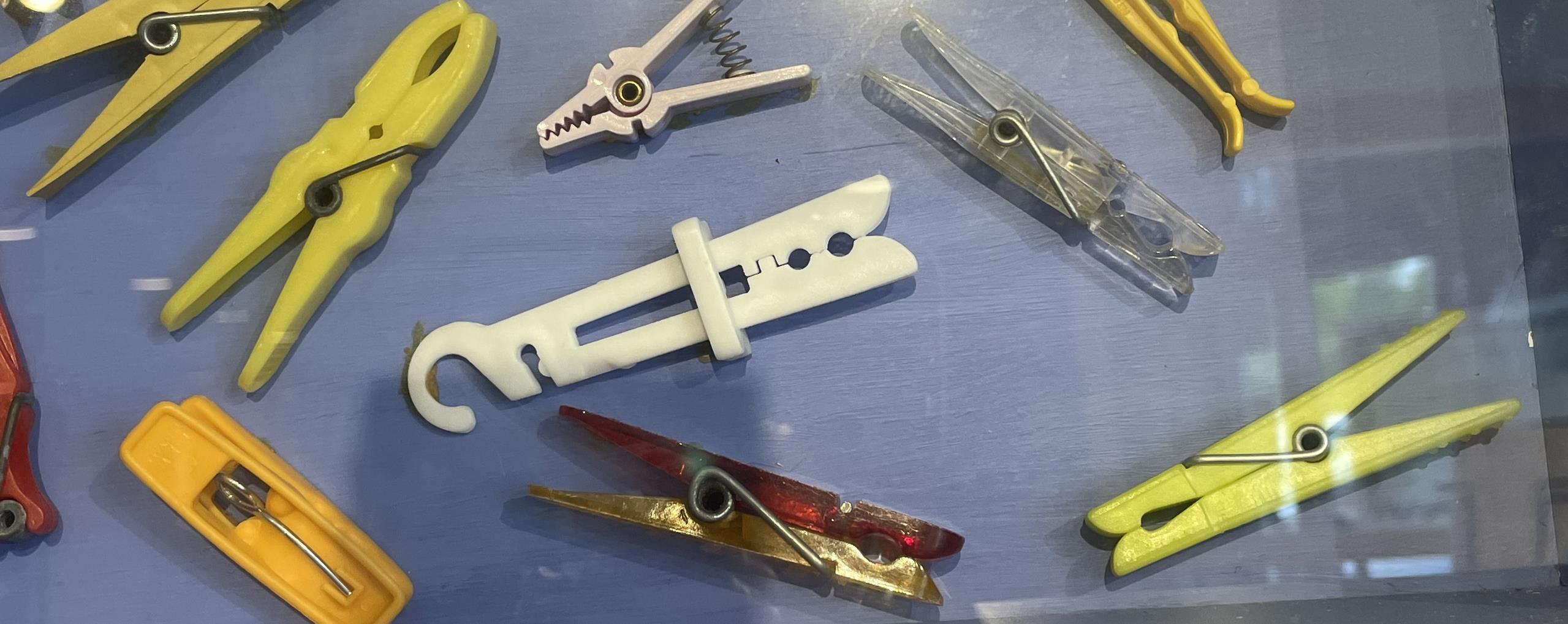
History of KPS - From Pegs to Pipes
In 1915, the company that is now OPW Sweden was manufacturing clothes pegs. At its peak, between 1948 and 1965, annual production reached over 80 million. In 1954 the company bought its first injection moulding machine to begin producing plastic pegs instead of wooden ones, and further down the line, heating, ventilation, and plumbing components. This time was an era of a classic invention – the plastic screw top.
In 1978, the company changed its name to Kungsör Plast AB and began extruding. The first product was a fuel hose for a Swedish car manufacturer, followed soon after by a silencer for aluminium masts on sailing boats.
In 1996, the KPS Petrol Pipe System™ brand was created and a marketing organisation for selling the pipe system was established. The rest as they say is history, with KPS becoming part of the OPW / Dover group, 17 years later, and continuing to innovate to this day, including launching the world’s first conductive double wall 6” HDPE piping system earlier this year.
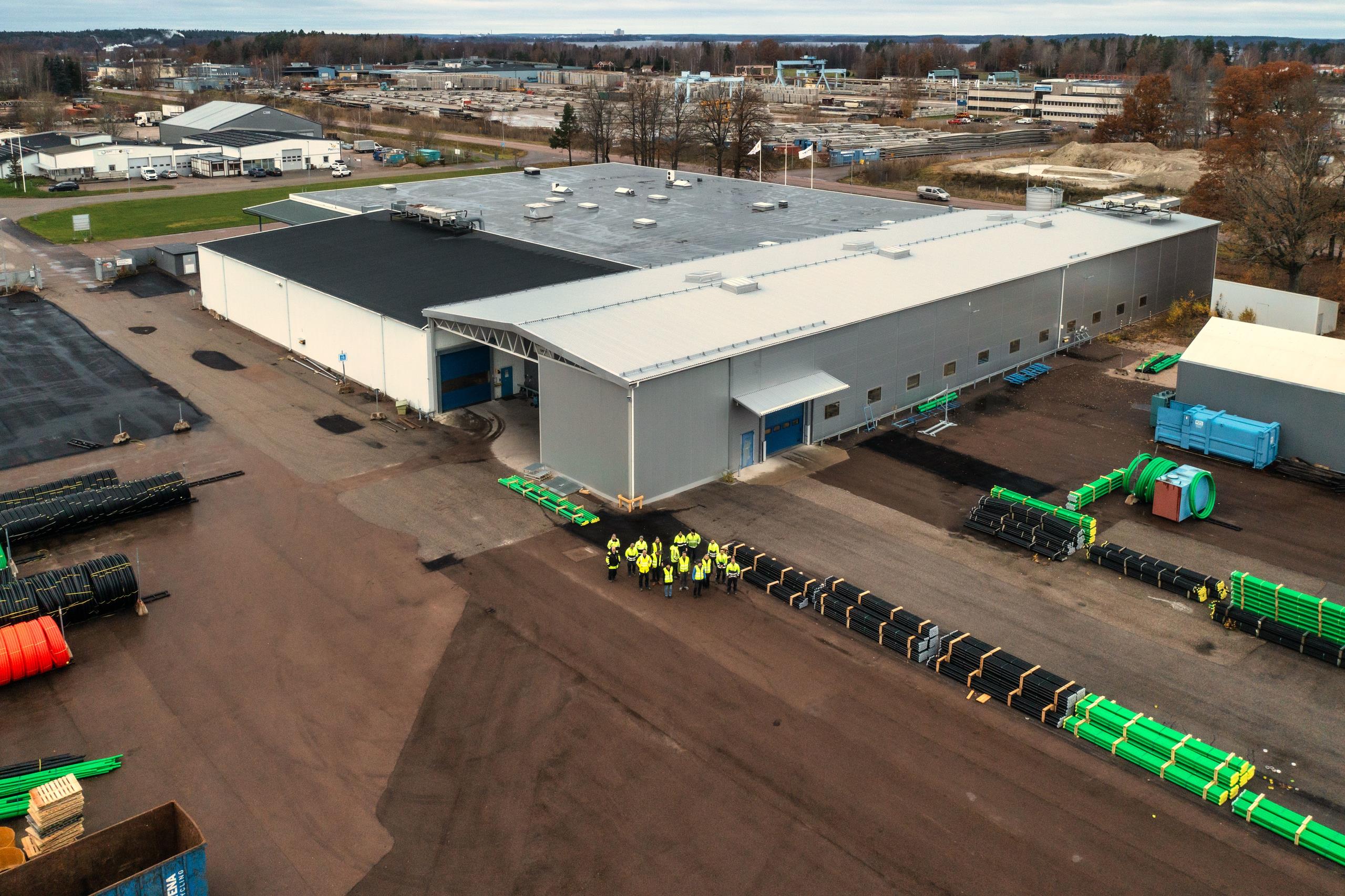
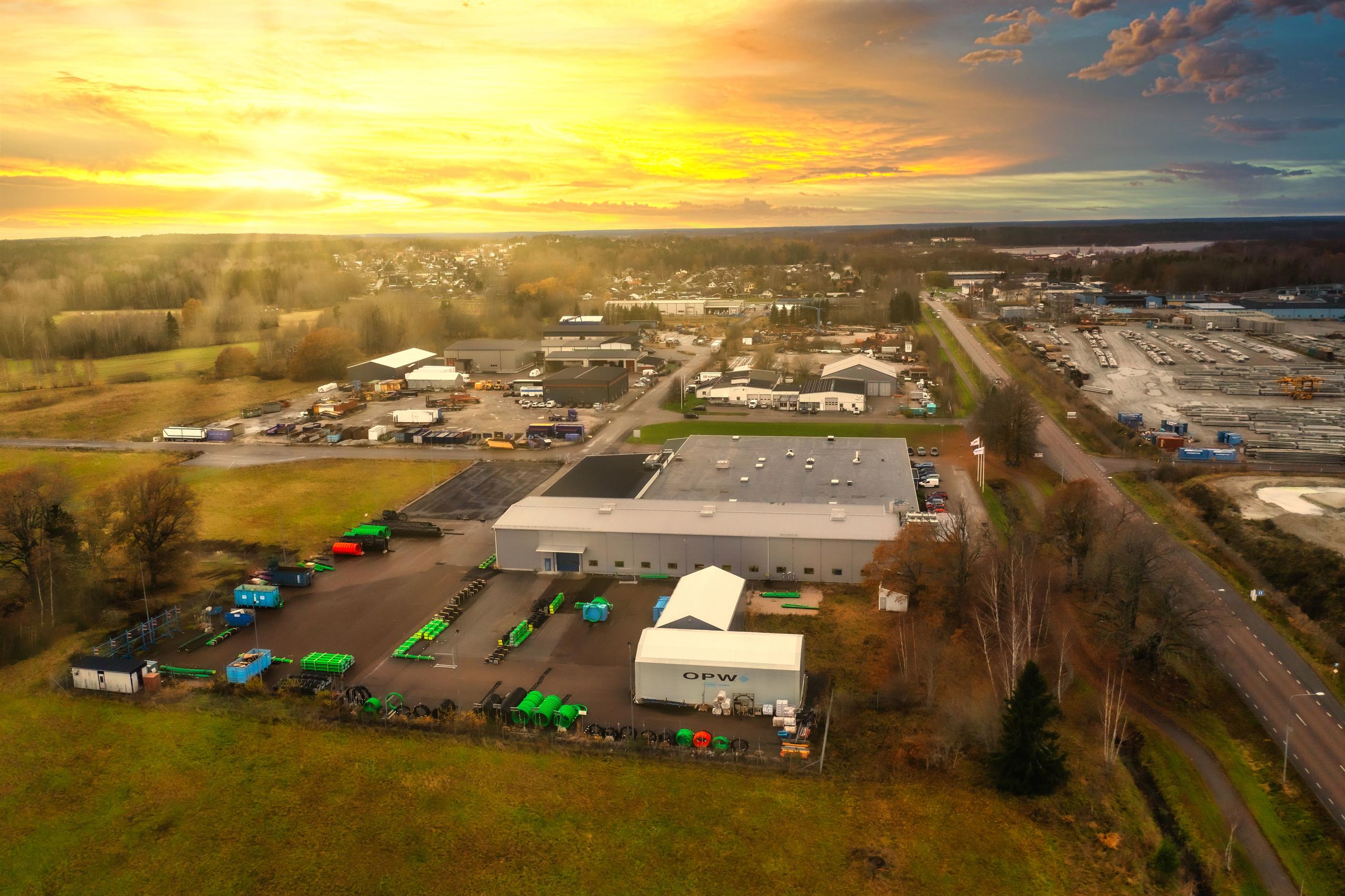
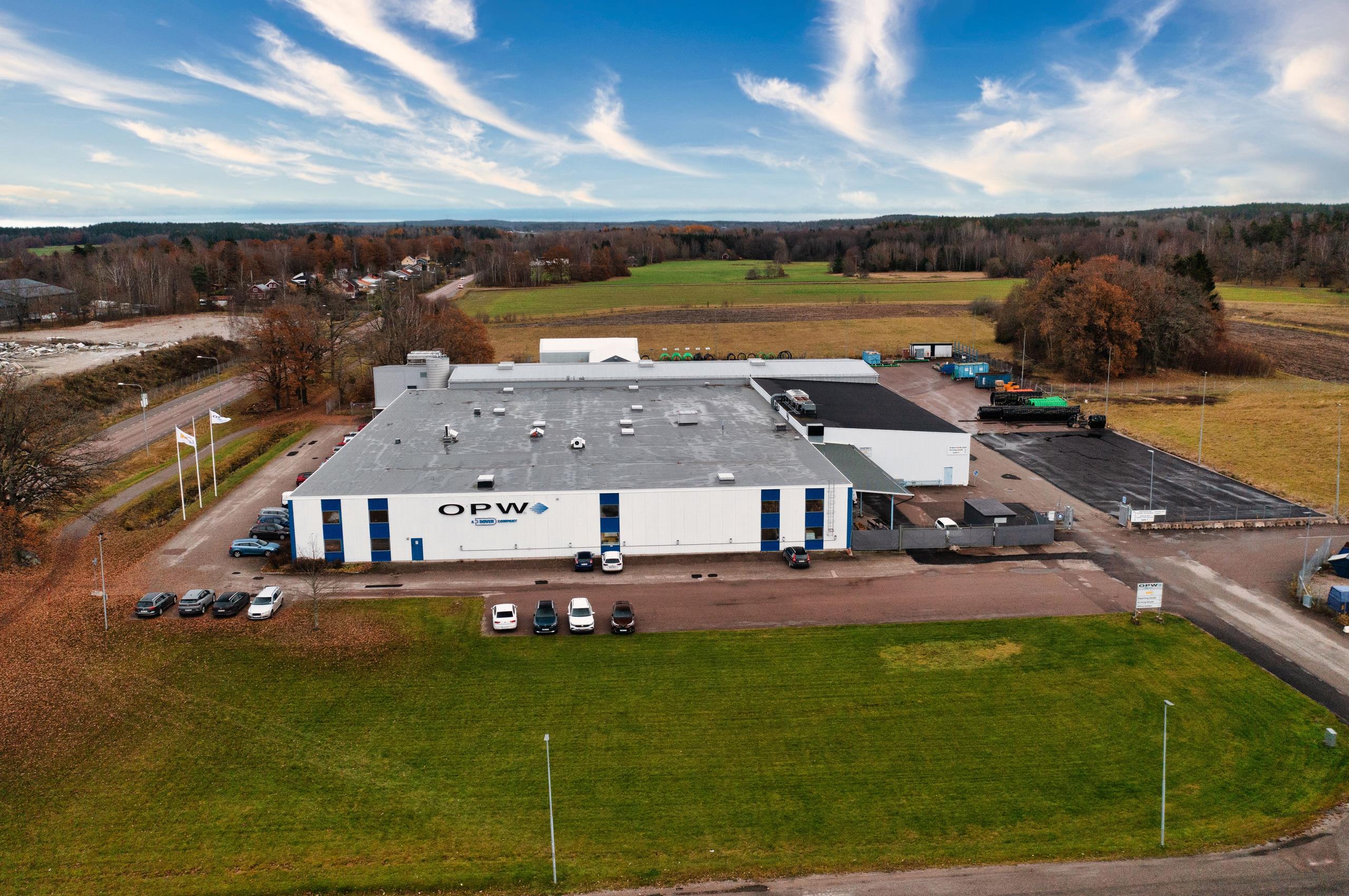
Its all about a good team spirit on the factory floor
To conclude our visit - after relieving ourselves of high-vis jackets, and protective glasses and getting back into our own shoes, we were introduced to two employees who work in the factory. Jari Laitala Jansson, who is the company’s longest-serving employee of nearly 35 years, and Sandra Shaan, a younger female member of the factory team.
Whilst Jari talked enthusiastically about the way in which the company and his role have developed over the years and how he had been at first apprehensive, when a large American company, OPW, had acquired Kungsör Plast AB, ten years ago, Sandra spoke about equal opportunities for women and how the team spirit on the factory floor embraces this to such a positive effect.
It was obvious from the enthusiasm of the whole manufacturing team, that OPW is about encouraging an entrepreneurial spirit for all employees and imbuing an environment of collaboration and personal development. OPW and the Dover Corporation seem to have certainly given the KPS brand a gateway to investment in new technology and processing methodology, which in turn has helped and will continue to help the growth of its business.